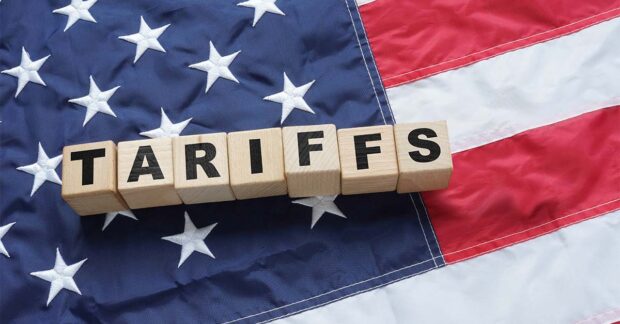Since President Trump’s inauguration, his administration has yo-yoed tariffs on countries around the globe. A new Debt.com survey shows the resulting price increases have intensified financial stress for many Americans.
Three in five Americans say “rising prices caused by tariffs negatively impact their mental health,” according to the nationwide poll. Among those feeling the strain, the emotional toll is clear:
- Stress: 75%
- Anxiousness: 74%
- Sadness: 38%
- Hopelessness: 33%
- Can’t stop thinking about it at work: 23%
- Loss of sleep: 17%
- Appetite loss: 7%
“Inflation is more than an economic issue – it’s a mental health issue,” says Howard Dvorkin, CPA, chairman of Debt.com. “When prices go up and paychecks don’t, Americans feel the pressure not just in their wallets but in their emotional well-being.”
The pressure’s building
Within just two weeks, Debt.com published back-to-back findings: “Trump’s Tariffs Among ‘Top Concerns’ for Everyday Americans” and “Americans Say Pay Hasn’t Kept Up with Prices.”
On April 2, President Trump announced “reciprocal tariffs” on 90 countries. That same day, a survey of more than 3,000 Americans was released.
When asked, “Do you approve or disapprove of recent tariffs announced by the U.S. government, including a minimum tariff of 10% on all imports to the U.S. from other countries?” more than half said they disapproved.
Three additional polls underscored the concern: inflation and tariffs are leaving many Americans worried about their finances.
“The challenge is they’re seeing all of this uncertainty, and they don’t know where the economy is going,” Dvorkin says. “Even the greatest minds in the country don’t know – because we’re charting new courses.”
The most significant new tariffs target Chinese imports. For some products, the total tariff burden has reached as high as 145%. That figure combines multiple layers: a base import duty, a new 125% “reciprocal tariff,” and an additional 20% tied to fentanyl enforcement.
As of May 12, some of those tariffs were temporarily reduced to 10% as part of a 90-day pause.
The best map for the course
Two weeks after the President’s “Liberation Day” speech in the White House Rose Garden, Yale University released a report estimating the impact on grocery prices.
The nonpartisan policy center concluded that “tariffs may add nearly $5,000 to the average family’s annual grocery costs.”
“Tariffs will increase prices – there’s no question,” Dvorkin explains. “We have to get back to the basics: Stop spending money you don’t have. Figure out what you need. It may be time to adjust your budget or pick up side work.”
With more than three decades as a CPA and credit counseling specialist, Dvorkin has long argued that Americans have a spending problem. The ease of credit card use makes it too tempting to go into debt for nonessential purchases.
Now, he worries that plastic is becoming a necessity just to make ends meet. Credit card debt has been rising at a rapid pace in recent years.
According to the latest data from the Federal Reserve, Americans collectively hold $1.18 trillion in credit card debt, averaging $7,321 per cardholder.
“Credit cards have become a lifeline – and that’s creating serious emotional and financial strain,” Dvorkin says. “We have to get back to basics – stop spending money that you don’t have.”
If your credit card debt has become an emotional and financial strain, it’s time to call in the pros. Get a free debt analysis with our financial professionals by calling .











